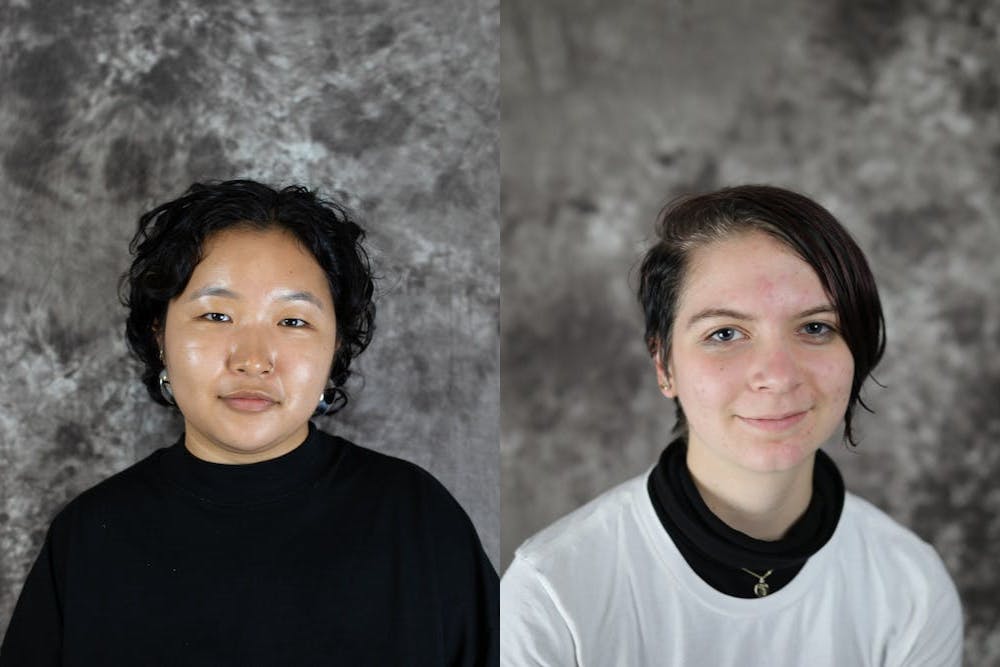They talk too much. They sing too loud. They dance in hallways while everyone else is just trying to walk. Their jubilation is at the expense of all those who have to put up with their unawareness of their surroundings.
Theater kids have long been written off as a subculture which serves as nothing more than a hotbed for drama and inflated egos.
“The drama of these kids is just bonkers,” Earl Robert Kipler III, a freshman mechanical engineering major, said. “Don’t get me wrong, what they can do on stage is surely impressive, but unless you make it to the tippy-top of the acting business, you ain’t paying the bills with your acting gig at the local theater…there is no sense in flaunting your talent.”
The juvenile antics, such as singing show tunes on bus rides and repping merch from favorite musicals, does not speak to the truth of theater. Students pursuing the art look back on their high school years with slight embarrassment and fond nostalgia.
“Yeah, now looking back now I cringe, and I roll my eyes,” Caroline Jameson, a sophomore music theater major, said of her love of “Hamilton.” “But like, I really did love it with such a passion. It just made me happy.”
Your teenage years are when the craft really consumes you. It’s a pivotal stage in your transformation into an artist. Some kids grow out of their drama club phase. Others recognize the value of this experience and pursue it further, with their love for theater beginning to take shape as a legitimate pursuit.
“‘Why are you singing?’ Cause when your feelings get too big to speak, you sing, and when your feelings get too big to sing, you dance,” Jameson said. “That’s another theater kid adage.”
During high school, when students have more opportunities to choose their own classes, the time demanded by theater begins to weed out those who lack the true artistic spark of passion.
“I went to a performing arts high school in the City,” Alissa Di Cristo, a senior theater performance major, said. “I started doing shows and stuff, so I was like, ‘Oh, I actually do want to do theater.’”
This high school experience is one of many crucial predecessors for the final stage: entering the profession as a trained artist. Actors confront the stakes of the industry and their own roles within the art. Rather than being casual performers, they become professional artists.
“I think that there’s sort of a stark difference when you get to the collegiate level,” Moth Medina, a senior theater performance major, said. “Where before, doing theater is akin to a sport, I think, in the way that it dominates your time and your personality. But it’s still more of a hobby. And it’s still something that is extrinsic to you. But then at the collegiate level, it becomes like going to trade school.”
Their liveliness in school hallways is the same liveliness that their craft requires of them on stage.
“If you put in half of yourself and not your full self, then you’re not going to effectively communicate the humanity that story needs,” Glen Chitty, a senior theater performance major, said.
Theater is a crucial part of them, like a limb. The fun is found in investigating the different methods for authentic self-expression and channeling that in becoming someone else onstage.
“Do they [the characters] not have control? What are they pursuing? The stakes are that can you make those things bubble so realistically that someone in the audience says, ‘Wow, I didn't know I was the only one who hung my head when I left my front door,’” Chitty said. “So the stakes is: am I going to make someone see themselves?”
This responsibility to portray the shared humanity onstage rubs off in a way that changes the way an actor moves through the world offstage.
“When you’re doing a show, you kind of subconsciously or consciously absorb the atmosphere of the show,” Chitty said. “Last year when we did ‘Cinderella,’ we were kind of living in a world that prioritized kindness and rewarded kindness, and it made me more inclined to lead with kindness.”
Tenzin Wodhean is an assistant arts editor and can be reached at tenzin.wodhean@ubspectrum.com
The opinion desk can be reached at opinion@ubspectrum.com





